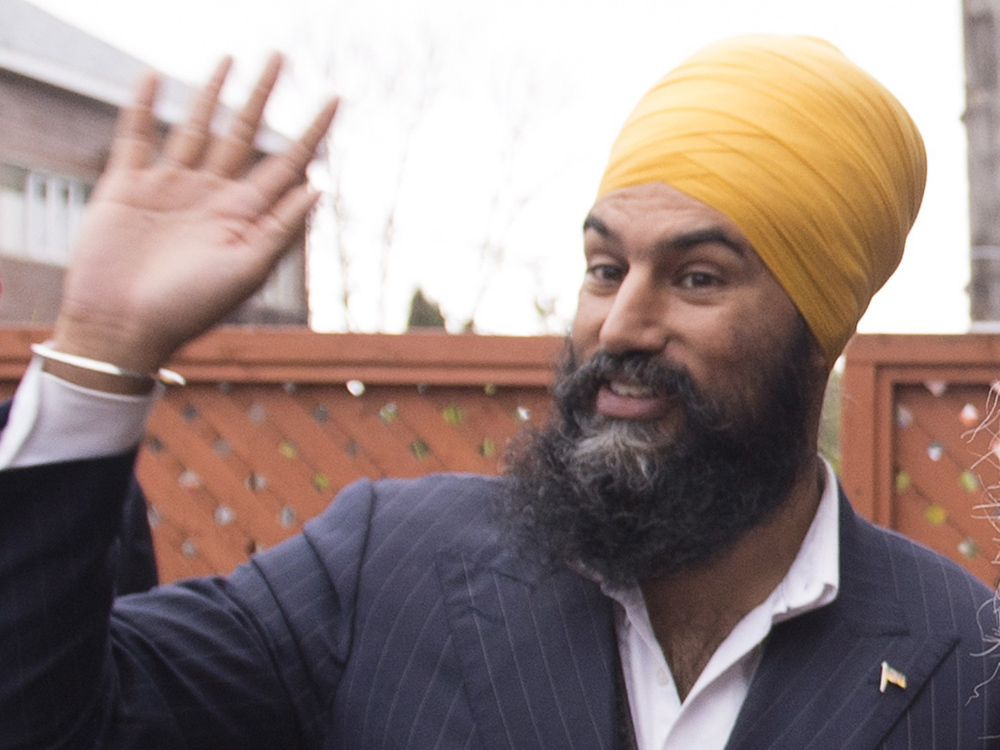On the sensitive topic of Quebec’s secession, the NDP has a history of being coy about the process. Throughout the early 2000s, party veterans like Jack Layton, Thomas Mulcair and Craig Scott claimed Quebec could trigger secession talks if a mere 50 per cent plus one of Quebecers voted to leave. Never mind that the Supreme Court had said in 1998 that a “clear majority” of Quebecers would need to support separation before Canada could be dragged into messy divorce proceedings, and that a clear majority has long meant more than a simple majority. Mere details! Boring technicalities!
It seems freshly minted NDP leader Jagmeet Singh is prepared to take a page from this same playbook. Asked by reporters last week how he’d respond if Quebecers voted to separate, he said: “We will immediately help people…. We will respect the decision of the people, without fault, without doubt, because it is a right that is so important, a human right … We are talking about the right of self-determination.” Later, he added: “I, personally, would love us to stay together, but at the same time I respect the decision without fault.”
Ah yes, self-determination. That’s the right that separatists like Spain’s Catalonians and Iraq’s Kurds trot out when they’re trying to legitimize their efforts to break apart their countries. Understandably, leaders of such movements tend to downplay the limitations of what this right promises. It’s a much stranger state of affairs, though, when a person who has designs to be the leader of a sovereign federation does so as well.
It is strange for a person who wants to lead a federation to support secession
Singh is not wrong that self-determination is a recognized human right under international law. But his comments betray some fundamental misunderstandings about this right, as well as the laws that would actually govern Canada in the event of a resurgent separation movement.
As the Supreme Court noted in its 1998 Reference re Secession of Quebec, the international treaties that recognize a right of self-determination make clear that peoples are normally expected to exercise this right internally: by pursuing their political, economic and cultural development within the country of which they’re a part.
Only in a handful of dire circumstances — where this right is “totally frustrated” — does international law recognize a right to unilateral, external self-determination. Peoples who have been living under colonial rule; who have been subject to foreign domination or exploitation; or who have been blocked from being self-determining within their country, may meet the threshold for separating from a sovereign state. In practice, though, the international community is often loath to embrace secessionist movements even in these cases (as one is now seeing with the tepid response to the Iraqi Kurds’ independence movement, which some commentators suggest is legitimate given their long history of oppression by the Iraqi state).
It is simply not the case that Quebec would be entitled to separate
Quebec would not meet this threshold for unilateral secession. The court has already said as much. Far from being blocked from being a self-determining nation within Canada, Quebec has been afforded numerous special privileges and powers over the years. Throughout most of Canadian history, Quebecers have occupied many of the highest positions of national power. Within Canada, Quebec has flourished.
So it’s simply not the case, as Singh suggests, that Quebecers would be entitled to separate, if that’s what they so desired. Rather, if they voted to leave, they’d be compelled to try to do so in accordance with Canadian constitutional law … which would be a bloody nightmare.
Because, as the court has also said, Canada would be under no obligation to simply accept Quebec’s demand to leave. Rather, Canada and Quebec would merely be obliged to negotiate — which may or may not ever lead to anything. One need look no further than the Brexit imbroglio to see that actually excising oneself from a union is a different thing entirely from expressing the desire to go.
His near enthusiasm for Quebec's departure is difficult to accept
At this early stage in his leadership, Singh’s ignorance of the legalities of separation is forgivable (assuming, perhaps generously, that he was not deliberately misstating the facts). But his near-enthusiasm for the idea of Quebec’s departure is far less so.
Yes, it’s true, Singh voiced the caveat that he, “personally, would love (for Canada) to stay together.” But when considered in the context of his overall remarks, there can be little doubt he could not be counted on to stand up for Canada’s national interests in any negotiation process. Needless to say, a willingness to fight for a united Canada should be a basic precondition for the particular job Singh’s seeking.
Singh’s remarks also reflect a disturbing political relativism. His aversion to insisting that any particular version of Canada is objectively superior to any other — that Canada is indeed a better nation economically, politically and culturally when it includes all its constituent parts — suggests a singular lack of historical understanding, political vision and political will. Countries are bound together by a lot more than their citizens’ preferences at any particular point of time. Nations would be continually torn asunder if it were otherwise.























